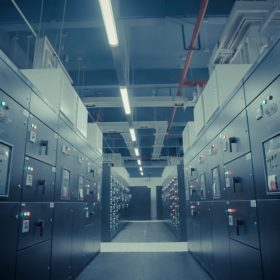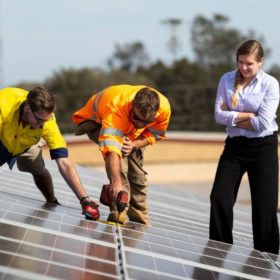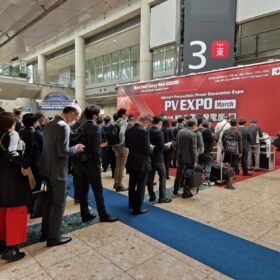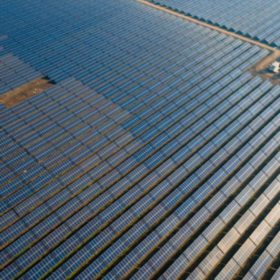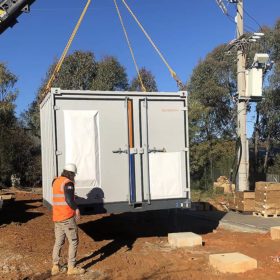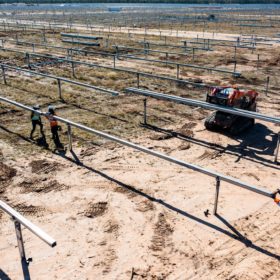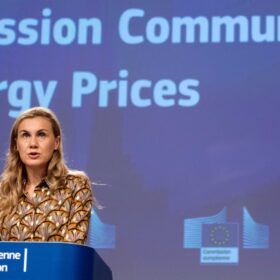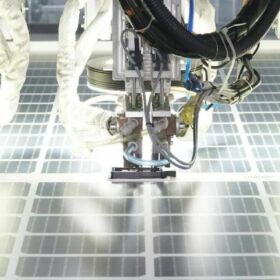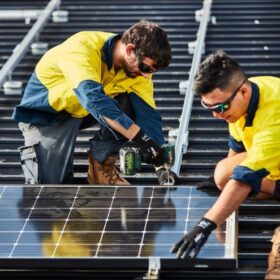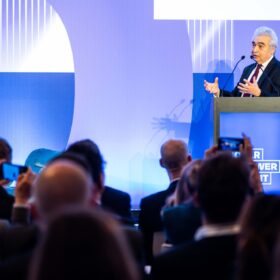Detailed customer energy data is becoming available, here’s what the government scheme could do for industry
Access to extremely detailed consumer energy data is becoming available in Australia part of the federal government’s Consumer Data Right scheme. Used imaginatively, the data has the potential to improve how investment decisions are made, and could even open up new approaches to energy retailing, Stuart Low, founder of Biza tells pv magazine Australia.
CEC to no longer oversee solar accreditation, product listing contract up for grabs
Following consultations with industry stakeholders, Australia’s Clean Energy Regulator will open an application process to decide which organisation will list approved solar panel and inverter equipment lists in future, part of a major overhaul to the industry.
PV Expo 2023: Japanese solar’s struggle for space
PV Expo and the wider Smart Energy Week wrapped up in Tokyo last week. It revealed ambitious plans for solar and energy storage installations in Japan, including creative approaches to dealing with a severe lack of space for new installations, which should bring plenty of opportunities for domestic and international players.
India exempts some solar projects from domestic content requirements
India’s Ministry of New & Renewable Energy has exempted solar projects from domestic content requirements if they are commissioned by March 31, 2024. The move provides developers with the flexibility to source modules at more cost-competitive rates, according to Indian ratings agency ICRA.
Queensland’s publicly-owned battery rollout sees next town selected for 8 MWh install
Queensland is continuing its rollout of publicly-owned batteries, announcing the town of Emerald in its Central Highlands Region will soon host a 4 MW / 8 MWh battery. While the announcement doesn’t make reference to buzz term ‘community batteries,’ it seems the state is effectively rolling out a storage fleet to deliver on the promises of the concept.
Investment ‘boom’ in Australia sees utility-scale jump 50%, puts targets within reach
New investment in solar and wind hit a record 7.1 GW in Australia in 2022, with the Clean Energy Regulator reporting a 50% increase in large-scale projects reaching final investment decision compared to 2021. In total, 5.3 GW of new renewable energy capacity was added to the grid in 2022, according to the Regulator’s State of Renewables report.
Europe to launch hydrogen auctions
The European Commission says it will set up the new European Hydrogen Bank by the end of this year, with additional plans to hand out 10-year contracts in a new hydrogen auction. Meanwhile, Fortescue Future Industries is setting up a project in Kenya.
Reshoring of US solar manufacturing
The Solar Energy Industries Association’s (SEIA) latest white paper on solar and storage manufacturing includes an interactive map. It shows that momentum has started to build for a transformational expansion of domestic solar and storage manufacturing.
Victoria backs traditional owners to build clean energy future
The Victorian government will make almost $1 million (USD 670,000) in clean energy grants available to traditional owner corporations to deliver renewable energy projects – including solar generation facilities – that will provide economic and social benefits for Aboriginal communities throughout the state.
EU solar manufacturers’ ESG credentials could bolster revival
With calls for a revival in European PV manufacturing becoming more urgent, the Environmental, Social, and Governance credentials of its PV producers are being touted as a way in which manufacturing can be supported or even protected. The case for the ESG credentials of European manufacturing was advanced by multiple speakers at the 2023 SolarPower Summit this week in Brussels.
